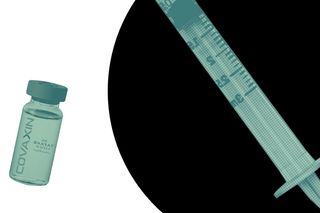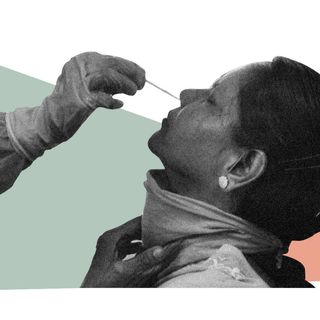
ICMR’s Rush to Announce a Vaccine May Have Dented its Reputation
“It has lowered the credibility of ICMR, and along with that of India’s scientific community,” said a scientist.

The development of a vaccine is a complex and lengthy process, which has typically taken 10 to 15 years in the past. However, the Indian Council of Medical Research (ICMR), India’s apex body for the formulation, coordination, and promotion of biomedical research, recently claimed that it wanted to release a vaccine by August 2020.
The ICMR, along with a Hyderabad-based private company, Bharat Biotech, jointly developed Covaxin, a Covid19 vaccine candidate. On July 2, the ICMR’s director-general Dr. Balram Bhargava wrote to the 12 institutions participating in the trials to “fast track all approvals,” because it wanted to “launch the vaccine for public health use latest by August 15.” This came despite the fact that the vaccine was only approved for human trials on June 29. It’s important to note that human trials, on average, can take several months up to a few years to be safely completed.
The institute received severe backlash following this, with top scientists, public health officials, and the public criticizing the move for hurrying the trials and compromising on procedural requirements that are designed to ensure that trials are safe and fair.
“This is criminal. An improperly tested vaccine would cause enormous damage. ICMR DG must be prosecuted for this!” tweeted public interest lawyer and activist, Prashant Bhushan. As a result of this many such others calling this an ‘unscientific’ and ‘illogical’ move, on July 4, the ICMR clarified that the letter was only issued to cut red tape and was an attempt to avoid bureaucratic lethargy.
Despite this clarification, the letter has possibly caused a significant dent to the ICMR’s reputation as an agency that has promoted and monitored high-quality medical research over the past few decades. Although the agency has received as many brickbats as it has bouquets when it comes to managing Covid19, the agency successfully isolated the novel coronavirus, making India one of the few countries to have done so.
“It [the letter] has lowered the credibility of ICMR, and along with that of India’s scientific community, regulatory system government, and the potential vaccine (itself)… its reputation is dented before it is even ready,” said Dr. T Jacob John, virologist and former professor at Christian Medical College, Vellore, Tamil Nadu, to Hindustan Times. “It’s bad enough to have (Baba) Ramdev declaring a Covid-19 cure by press release, now we have ICMR appearing to ask investigators to bypass scientific protocols.”
ICMR’s diktat, says Dr. John, might make India a “laughing stock” worldwide.
Related on The Swaddle:
Anti‑Vaxxers Are the ‘Biggest Threat’ to Controlling Outbreaks, US Researchers Warned in 2019
Any fallout as a result of this rushed process may also impact India’s reputation in the pharmaceutical space and its revenue from global exports. Currently, India is the third-largest producer of pharmaceuticals in the world by volume and supplies 20% of global exports of generic drugs. It is also a major vaccine producer with India’s Serum Institute being the world’s largest producer by volume. Bharat Biotech, the company that developed Covaxin, also delivers four billion doses to the world for infections like rotavirus, hepatitis, Zika, Japanese Encephalitis, and others.
“These absurd benchmarks may damage India’s competitive advantage in vaccines and pharmaceuticals and it will not be trusted by other countries,” wrote Nitin Pai, director of Takshashila Institution, an independent centre for research and education in public policy for The Print. Pai explained that, for India, the credibility of its medical and pharmaceutical regulatory authorities is of strategic importance. “Beyond protecting Indians, indigenously developed vaccines and treatments have global potential. Everyone on the planet will need this vaccine, at least once.”
However, fast-tracking the processes involved in developing a vaccine, just to win such strategic importance or secure ‘first-mover advantage’ will come at the price of compromising the quality and safety. “What’s more important is to have [a vaccine] that is safe and effective, affordable, and available for everyone,” Pai said.
Further, hasty decisions or wrong approvals can lead to distrust among the public regarding India’s healthcare system. The absence of thorough clinical trials could directly impact people’s lives and shake people’s confidence in vaccinations for generations to come.
As summarized by journalist and author Sagarika Ghose in a tweet, “A health emergency is not a moment for grandstanding by politicians, lives of millions could be seriously harmed if the vaccine is rushed without proper trials.”
Anubhuti Matta is an associate editor with The Swaddle. When not at work, she's busy pursuing kathak, reading books on and by women in the Middle East or making dresses out of Indian prints.
Related


WHO Acknowledges Coronavirus Could Be Airborne
